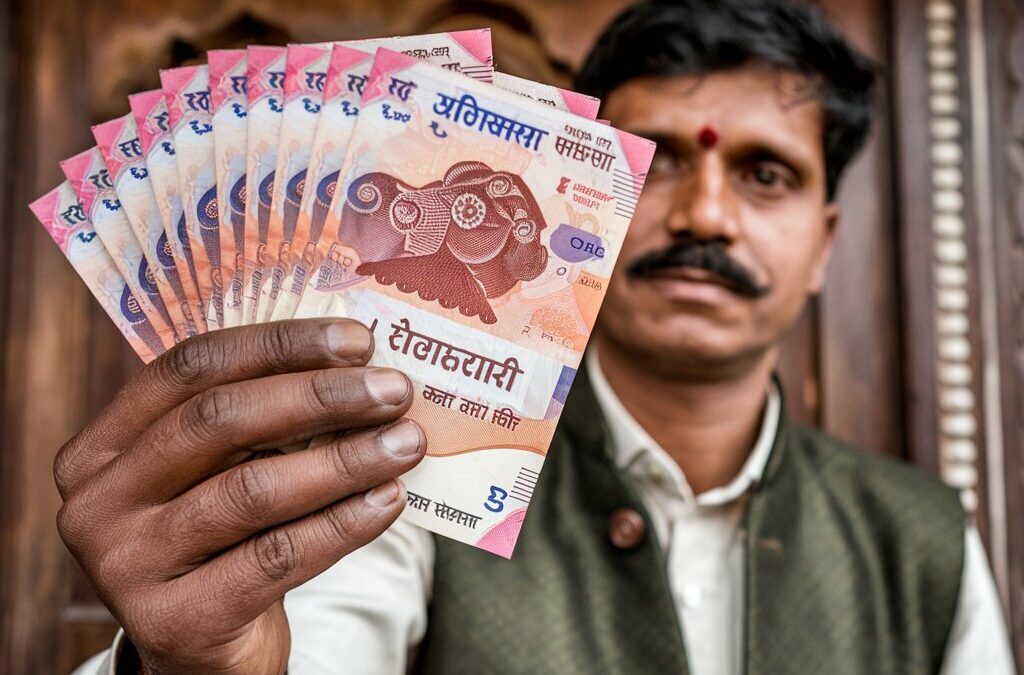
Top Legal Websites that Every Law Student Should Follow
November 1, 2024
Diwali: Celebrating Unity and Diversity Through Light
November 4, 2024Article written by Vibhor Maloo
The latest Supreme Court ruling which declares the electoral bonds as illegal according to the constitution highlights a landmark in Indian politics. The electoral bonds were introduced in 2017 to change the election funding and reduce the negative impact of black money during elections. On 15 February 2024, the Constitution bench of five judges headed by Chief Justice Chandrachud struck down the plan and the legislative amendment that were the basis of it. It also brings to light some important issues of financial transparency and the democratic spirit that the Indian constitution embodies.
UNDERSTANDING ELECTORAL BONDS
The electoral bond concept in India started with the Finance Bill of 2017 which was a part of the Union Budget in that year and was presented by the then Finance Minister Arun Jaitley. While electoral bonds are presented as a way of reforming political funding, they are still believed to be a tool for accountability, transparency and reducing the impact of illegal money on elections. Albeit, the Opposition argued that the laws passed in the form of money bills (specific class of legislation that pertains only to financial matters, designed to permit the rapid enactment of laws by Parliament Unlike typical bills, which require the endorsement of both houses, which bypass some parliamentary processes) were a source of early conflict by which the constitutional restrictions were allegedly violated. This genesis and the most recent ruling demonstrate how complex the relationship is between political objectives, constitutional norms, and democratic traditions in India electoral system.
LEGAL CHALLENGES TO ELECTORAL BONDS
Electoral bonds have long been controversial since its inception in 2017. However, the constitutional questions about electoral bonds finally came to a stop when the issue came up in a recent case, before the Supreme Court of India, in Association for Democratic Reforms & Anr. v. Union of India & Ors. During the proceedings, the Court ordered the State Bank of India (SBI) to furnish data on the encashing of the Electoral Bonds, with immediate effect.
The judgement pronounced in this case has fundamentally altered the electoral bonds system in India. We are going to discuss the judgement, in parts for better understanding.
The Supreme Court’s pronouncement on electoral bonds described the policy as ultra vires to the framework of constitutional principles. The court ruled that the Union government’s plan, as well as previous revisions to the Representation of People’s Act, the Companies Act, and the Income Tax Act, breached Article 19(1)(a) of the Constitution, which guarantees the citizens, access to information regarding political finance, under Article 19 such as the right to information and the right to a free and fair election.
The Court examined the contradiction between the requirement for openness in political fundraising and the supposed anonymity provided by electoral bonds, emphasising the importance of striking a fine balance to protect democratic integrity. Because there is a need for accountability and transparency in a democracy like India, the names of the transfer parties must be revealed.
An in-depth examination by the Court, considered the constitutional provisions governing electoral bonds, scrutinising legislative purpose and determining whether the provisions are consistent with the fundamental values of the Indian Constitution. Moreover, the judicial cases of the past, such as PUCL v. Union 2 , Anjali Bhardwaj v. Union 3 , and Mazdoor Kisan Shakti v. Union 4 , etc. acted as a guiding light for the legality and judgement.
This judgement deterred the electoral bonds from being obscure from the public’s eyes and deterred this scheme, as being a facilitator for the illegal transfer of money and black money laundering. This ensured that the entities, that are procuring these bonds, in lieu of funding, do not incur unfavourable outcomes that are biased toward a government initiative or project.
IMPLICATIONS ON THE ELECTORAL POLITICS
The recent ruling, by the Supreme Court regarding bonds has implications for the democratic framework of India. The choice to declare the scheme unconstitutional due to lack of transparency seemed viable.
In terms of its implications for the upcoming 2024 General Elections is apparent, that certain top parties, like Bharatiya Janata Party (BJP) Indian’s People Party, have an upper hand. This leads to an electoral conflict, wherein there is a nature of elections in India as parties must use funding as a mode of popularising their party and their candidates for elections.
The Court declared the relationship between the electoral system and constitutional values as acceptable which can distrust public faith in democratic institutions. It is rather likely that there would be scepticism and democratic institutions. It is rather likely that there would be scepticism and discouragement for voters to vote for a party which encashed a lot of amount through electoral bonds. As the scheme has been declared unconstitutional by the court, so there are wide implied influences, that voters encounter, that the encashing of the electoral bond was immoral. This could probably lead to less vote share for the parties that have acted immorally or mala fide or where there is sufficient data to prove that these parties have illegitimately been funded.
Moreover, as the judgement has declared the scheme unconstitutional, the ruling government’s inability to address structural deficiencies in party funding legislation risks their vote share and affirms that they entertained a cycle of corruption and impunity, weakening democratic institutions; legitimacy.
CONCLUSION
Analysing altogether the above verdict, one can conclude, that the Supreme Court’s judgement on the electoral bonds is a crucial step for India’s democracy, as it accentuates openness and accountability in funding elections. In order to ensure the sustainability of democratic values for the long term, efforts to deal with the root causes, transform the systems and raise public awareness must be undertaken. Coordination between civil society, policymakers, and judicial institutions is necessary to preserve electoral integrity and bring back democratic leadership through public trust. The practice of transparency and inclusion would be the first step to birthing the
ideal political ecosystem in India.
IMPLICATIONS FOR THE LEGAL INDUSTRY
The Supreme Court’s ruling on electoral bonds has significant implications for the legal industry in India:
Increased Litigation: The ruling may lead to an increase in litigation as political parties and other stakeholders challenge the decision or seek clarification on its implications.
Legal Reforms: The judgement could prompt lawmakers to revisit and amend existing laws related to political funding and transparency, leading to a surge in legal advisory and drafting services.
Judicial Precedents: The ruling sets a precedent for future cases involving the balance between privacy and transparency, influencing how similar cases are argued and decided in the legal system
Election Law: Election law experts will likely be involved in advising political parties and candidates on lawful fundraising practices.
Regulatory Compliance: Legal advisors will play a crucial role in helping organizations comply with new regulations stemming from the judgement. This includes ensuring that political contributions are transparent and adhere to legal standards.
This ruling is a significant milestone in Indian jurisprudence, and its ripple effects will be felt across various legal domains.





